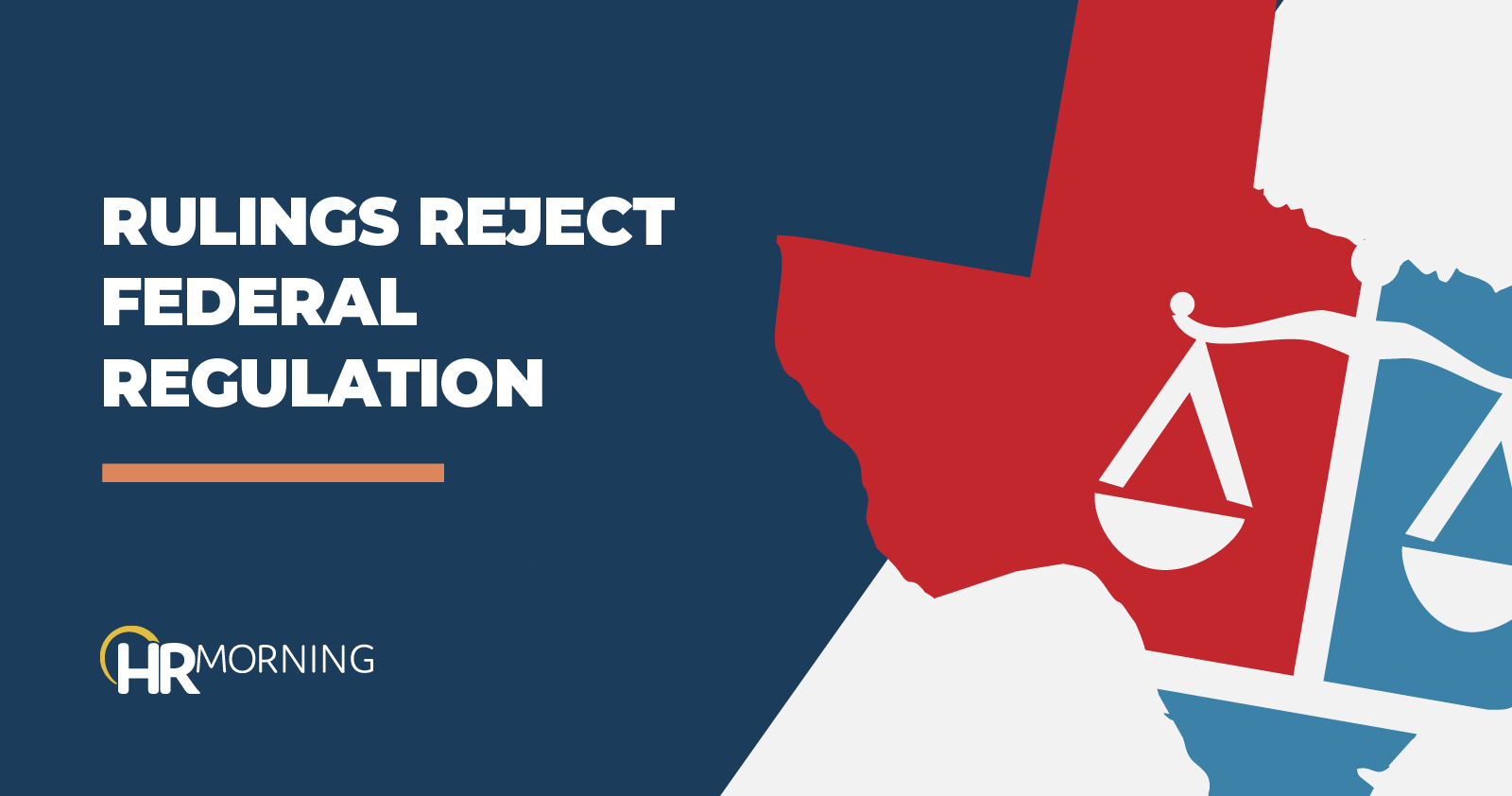A pair of rulings from two different federal district court judges in Texas have rejected federal regulation regarding the federal Pregnant Workers Fairness Act (PWFA) and a new National Labor Relations Board (NLRB) rule regarding the meaning of “joint employer.” The rulings further cement the state’s status as a relatively friendly environment for those wishing to challenge federal regulation.
In the first decision, a judge sitting in the state’s northern district decided that the PWFA cannot be enforced against the state of Texas.
2 rulings say feds got it wrong
The PWFA, which took effect in June of 2023, requires employers with at least 15 employees to engage in an interactive process with pregnant employees and to provide reasonable accommodations for pregnancy, childbirth and related medical conditions – subject to the limitation that accommodations need not be provided if they would impose an undue hardship on the employer.
The PWFA is not a broad anti-discrimination law. Instead, it applies only to the provision of pregnancy-related accommodations. These accommodations might include permission to sit, provision of flexible hours and provision of additional break time. The PWFA supplements the federal Pregnancy Discrimination Act, which amended Title VII and broadly bans pregnancy discrimination.
In August of 2023, the EEOC issued proposed regulations to implement the PWFA. It did not meet an initial deadline of December 29, 2023, to finalize those regulations.
Texas sues to challenge PWFA
Before those proposed regulations were released, the state of Texas sued to allege that the PWFA could not be enforced against it.
Texas specifically alleged that the PWFA is not valid legislation because the House of Representatives did not have a quorum present when it passed the law.
To support this allegation, it relied on the Constitution’s Quorum Clause, which has long been understood to require the physical presence of a quorum of House or Senate members to pass legislation.
In 2020, the House created a rule that allowed absent members to be included in the quorum count and to vote by proxy.
The suit Texas filed essentially challenged the validity of that rule.
A bench trial was held near the end of January, and Judge James Wesley Hendrix issued a ruling near the end of February.
Judge: You have to be there
Judge Hendrix decided that by including members who were absent in the quorum count, the PWFA was passed in violation of the Quorum Clause and cannot be enforced against Texas.
“[T]he Quorum Clause bars the creation of a quorum by including non-present members participating by proxy,” the judge said. The judge also noted that the House only had a quorum because it allowed non-present members to vote.
The court further noted that its ruling was limited only to stop the application of the law against Texas. It also specifically declined to decide whether some members may vote by proxy if a constitutionally required quorum is otherwise physically present.
While this ruling is clearly limited in scope, it nonetheless provides a basis for a challenge to the PWFA that has now proven itself to be viable.
Second ruling blocks new NLRB rule
In the second case, a judge sitting in the U.S. District Court for the Eastern District of Texas blocked an NLRB rule that expanded the definition of what it means to be a “joint employer.” The ruling in that case was issued just three day before the new rule was set to take effect.
Under the new rule, employers could be deemed to be joint employers if:
- they had an employment relationship with employees under common-law agency principles, and
- they shared or co-determined matters governing essential terms and conditions of employment.
Under the new rule, an employer could be considered a joint employer even if it never actually exercised the right to control a worker’s conditions of employment. In essence, it made it much easier to find that an employer is a joint employer.
A number of business groups, led by the U.S. Chamber of Commerce, sued to challenge the rule in a federal district court in the Eastern District of Texas.
In early March, Judge J. Campbell Barker blocked the rule’s application.
The judge decided that the new rule did not create a clear standard for employers. He further ruled that the NLRB’s act in rescinding the earlier rule, which was implemented in 2020, was arbitrary and capricious and thus was invalid.
The NLRB reacted by issuing a statement that said the ruling “is not the last word” and that it is “actively considering next steps.”


